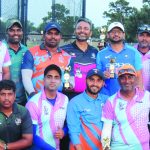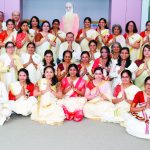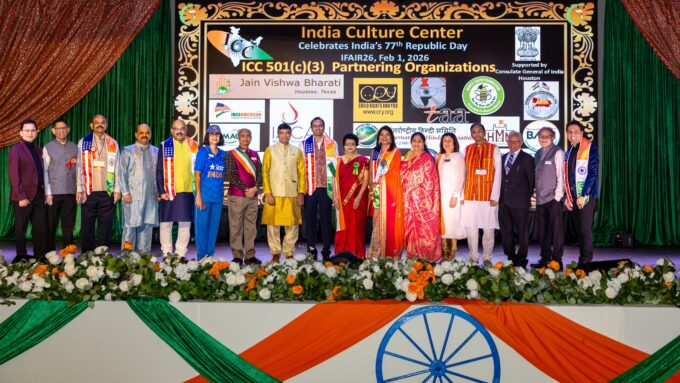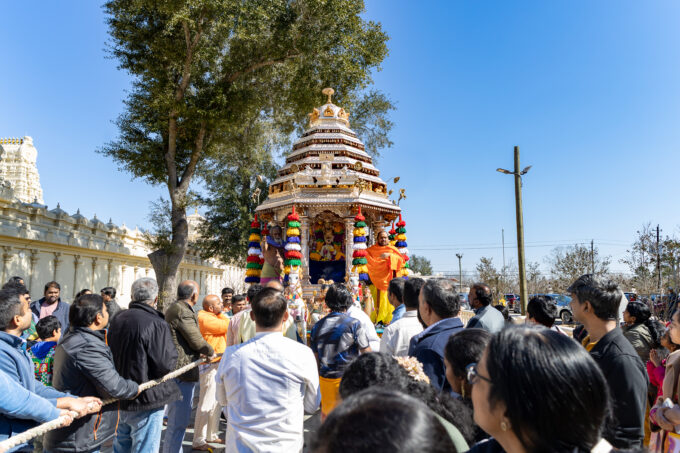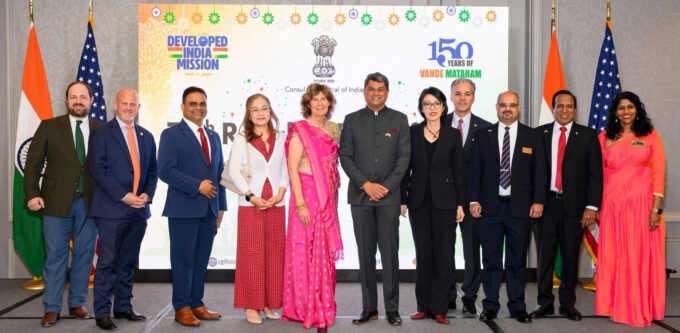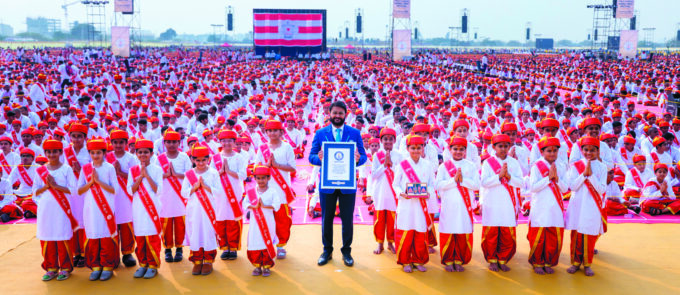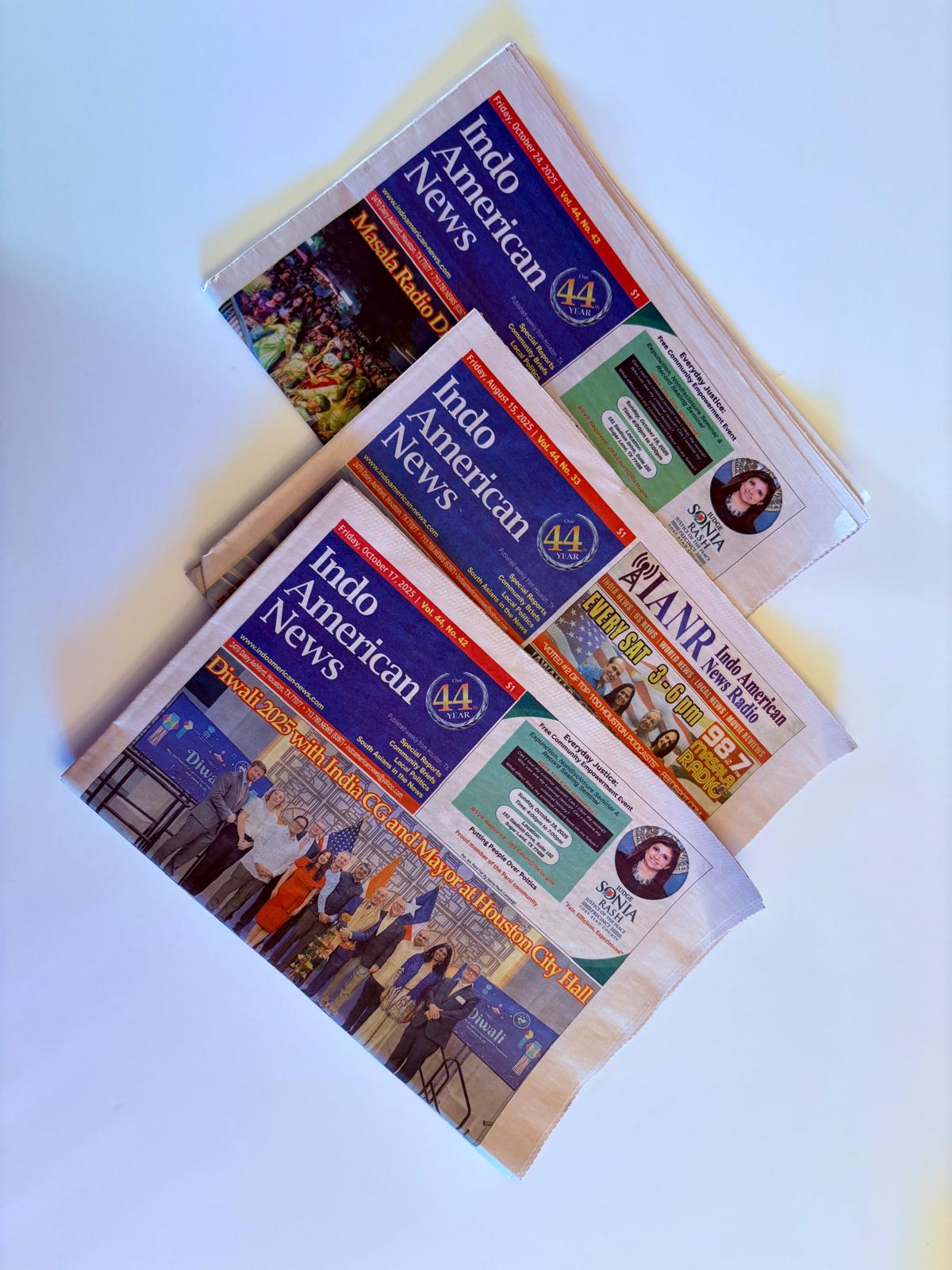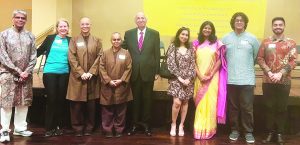
By Juhi Varma
Good news can feel scarce these days. Assassinations, terrorist attacks and tariffs dominate the news, making violence and division seem like the defining themes of our time. Stories of kindness rarely carry the same weight.
But a recent visit to the Zoroastrian Center in Houston was a reminder that, while compassion rarely makes headlines, it is still very much alive in the world.
More than 100 representatives from local faith and sub-faith communities came together for the annual Interfaith Dinner and Dialogue, sponsored by the Fort Bend Interfaith Council.
The spacious event hall was set with 12 tables, each holding eight or nine chairs. From the start, it was clear this wasn’t going to be an event where guests sat listening passively, half-focused on the (very impressive) snack tables outside. Instead, participation was the point.
Seats were carefully assigned, each table was arranged to include people of different religions, ensuring that Fort Bend County’s colorful diversity of faiths was reflected in every conversation.
“In a time when the world is often shaken by religious conflict, this gathering served as a powerful reminder of the importance of dialogue,” said Geetha Ravula, founder of non-profit organization Ashirwad A Blessing Temple. She has served on the board of the Fort Bend Interfaith Council for six years.
To help spur meaningful dialogue, the organizers provided the attendees with prompts.
It felt a bit like a workshop or a breakout session. We went around the table, answering questions, listening to each other, and noticing the common ground we shared. On paper, it might sound contrived, but in the room, the experience was genuine and unexpectedly moving.
“When we meet and have a dialogue with openness and sincerity, our differences become pathways to connection rather than division,” Geetha ji said.
Pastor David Sincere served as the master of ceremonies
“It was fascinating to learn about the things we have in common,” one attendee shared. “But it was also interesting to hear about the practices and beliefs that are unique to certain traditions.”
On each table lay a sheet of paper with a list of questions: What is your favorite festival? What does service look like in your religion? Share something you admire about another faith. The exercise was simple but powerful — it encouraged participants not only to learn about each other’s traditions but also to recognize how much they shared. By the end, I felt as though a heavy curtain had lifted, revealing a world without borders, prejudice, or religious hostility. For the purpose of this story, I’ll focus on just the first question we answered. One question is enough to illustrate the larger point.
What is your favorite festival from your faith?
Nazi Khadivian (Bahai Community Of Sugar Land & Fort Bend): My favorite one is Nowruz on 21 March. It means ‘new day’. It is a time of change. We celebrate the beginning of the spring. Everything grows new. We have great parties—huge halls, thousands of people. We share our calendar (partially) with Zoroastrians, because this is a Zoroastrian festival we adopted. So, Iranians were Zoroastrian before the attack from Arabs.
Lisa Lauve (St. Laurence Catholic Church): Always, as a child, being Catholic, Easter was important. But as I’ve gotten older, I’ve really come to appreciate the death and resurrection more deeply. It’s not just a church service anymore. We all go through times when we don’t know what’s happening, when everything feels uncertain. And then, somehow, there’s resurrection. I think age shifts your focus—you begin to see that cycle more clearly.
Juhi Varma (your reporter): We celebrate a lot of festivals—Diwali and Holi are big ones—but my favorite is Ganesh Chaturthi, especially in my state, Maharashtra. For ten days, families bring an idol of Ganesh into their homes, decorate an altar, and everyone comes to visit. On the last day, we take the idol—usually eco-friendly now—to the sea and immerse it. It’s a way of saying goodbye until next year.
Yasmin Engineer (Zoroastrian Association of Houston): There is a Parsi tradition called the Haft-Sin (or “Haft Seen”) table, associated with Nowruz where seven items starting with the “S” sound/letter are placed on a table, all symbolizing different things. Sabzi which means greens symbolize rebirth and renewal. Samanu, a pudding for wealth and fertility. Sib, that is apple for beauty and good health. Seer, garlic for health. And more.
John Barzilla (St. Mark’s Episcopal Church): Mine would have to be Christmas. All the Sicilian families come together, and the women make fig cookies and all sorts of dishes. It turns into this big gathering where you end up seeing relatives you didn’t even know you had—because if you’re Sicilian, you’re related to just about everyone.
Davis Tolman (Thoreau Unitarian Universalist Congregation) We have a tradition called the water ceremony. It’s usually in late August when people come back after summer. We all bring water from a meaningful personal source to church, it’s poured into a little hole, mixed together. It’s kind of like a symbolic homecoming.
Jessica Leavitt (The Church of Jesus Christ of Latter-Day Saints): For me, it’s General Conference. All the members around the world participate at the same time. If you’re in Salt Lake, you can go in person, but most people watch the broadcast. It happens twice a year. Our Prophet and some of the apostles speak to us. Since we believe in living prophets, it’s really meaningful—we get to hear their words directly.
Festivals and traditions take many forms, but they all share common threads: a sense of community, reflection, renewal, and connection.
“Each faith carries profound wisdom that elevates our spirit, and together, we weave a vibrant tapestry that reflects the one Divine Source from which we all originate,” Geetha ji said. Geetha Ravula has been a representative of Hindus of Greater Houston for many years.
What is the Fort Bend Interfaith Council?
The Fort Bend Interfaith Council was created to foster meaningful connections among faith communities. Each year, it sponsors three signature events: an Interfaith Thanksgiving Service in November, a Martin Luther King Youth Day of Service in January, and the Interfaith Dinner and Dialogue.
Faiths represented included Baha’i, Muslim, Buddhist, Methodist, Hindu, Baptist, Ismaili Muslim, Jain, Jesus Christ of Latter-day Saints, Sikh, Catholic, Unitarian Universalist, and Zoroastrian.



